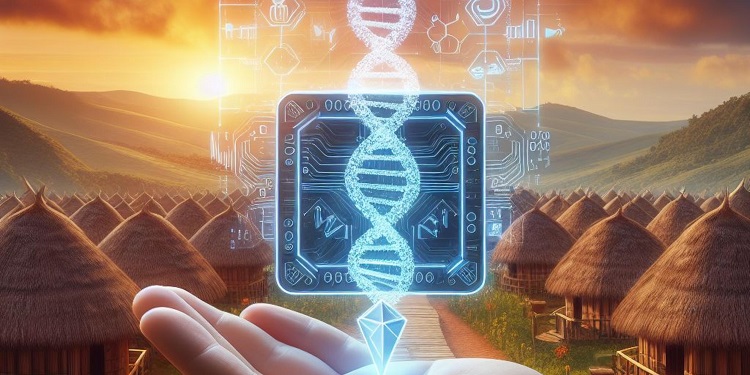In an exploration of safeguarding Indigenous genomic data, the article delves into the innovative integration of blockchain technology. It emphasizes the technology’s capacity to uphold privacy, fortify control, and honor sovereignty. By elucidating both the advantages and obstacles of this approach, it underscores blockchain’s potential to revolutionize the management and dissemination of sensitive genetic information in alignment with Indigenous principles.
Challenges in Genomic Data Management
Amidst the era of extensive data and advanced genomics, the utilization and preservation of genetic information present profound ethical, legal, and societal dilemmas, particularly for Indigenous populations. The article, titled “Digital Sovereignty: Safeguarding Indigenous Genomic Data with Blockchain Technology,” scrutinizes the pioneering adoption of blockchain technology as a safeguard for Indigenous genomic data, ensuring confidentiality and respecting sovereignty.
A Confluence of Science and Culture
Genomic data serves as a gateway to invaluable insights into genetic predispositions, ancestral narratives, and the evolutionary trajectory of populations. For Indigenous communities, this data transcends mere scientific significance; it embodies cultural identity, ancestral heritage, and traditional wisdom, thereby rendering its protection a matter of sovereignty and dignity.
Addressing Historical Concerns
The historical narrative of genomic data collection and storage has been fraught with issues of consent violations, misuse, and unauthorized access. Instances of genomic data exploitation without explicit consent continue to raise alarms regarding ethical research conduct and encroachments upon community rights.
Blockchain’s Promise
Blockchain technology emerges as a robust solution to these challenges. At its essence, blockchain operates as a decentralized digital ledger, recording transactions across numerous computers in an immutable manner. This technology furnishes a transparent, secure, and tamper-proof record-keeping mechanism.
Empowering Indigenous Control
Through blockchain, Indigenous communities gain unprecedented autonomy over their genomic data. Smart contracts, characterized by self-executing agreements with embedded terms, can dynamically oversee consent management. Communities can stipulate conditions for accessing or utilizing their genomic data, with all transactions meticulously documented on the blockchain, ensuring transparency and compliance with agreed-upon terms.
Balancing Privacy and Accessibility
Blockchain facilitates the anonymization of genomic data to safeguard individual identities while permitting data availability for research purposes. By encrypting data and restricting access solely through private keys, blockchain ensures the sharing of genomic information without compromising sensitive personal details.
Global Initiatives and Challenges
Various global initiatives are currently exploring the application of blockchain to safeguard Indigenous genomic data. These endeavors illustrate how blockchain can be harnessed to regulate access to sensitive information and guarantee that all interactions with genomic data adhere to Indigenous laws and customs. Nonetheless, challenges such as the digital divide, technological infrastructure requirements, and the integration of traditional knowledge systems with digital solutions necessitate attention. Furthermore, ongoing dialogue with Indigenous communities is imperative to align technological implementations with community values and requirements.
Toward a Respectful Future
The future trajectory of blockchain in safeguarding Indigenous genomic data appears promising but demands meticulous and deliberate execution. As technology advances, so must the regulatory frameworks governing its utilization, ensuring they are founded upon principles of equity, respect, and mutual benefit.
Conclusion: A Path to Equitable Research
The integration of blockchain technology to safeguard Indigenous genomic data represents a pivotal stride toward respecting and preserving the sovereignty of Indigenous communities over their genetic legacy. It not only furnishes a means to fortify sensitive information but also empowers these communities to administer their data autonomously. As this technology continues to evolve, it harbors the potential to revolutionize genomic research and data protection, charting a course toward more respectful and equitable scientific inquiry.









